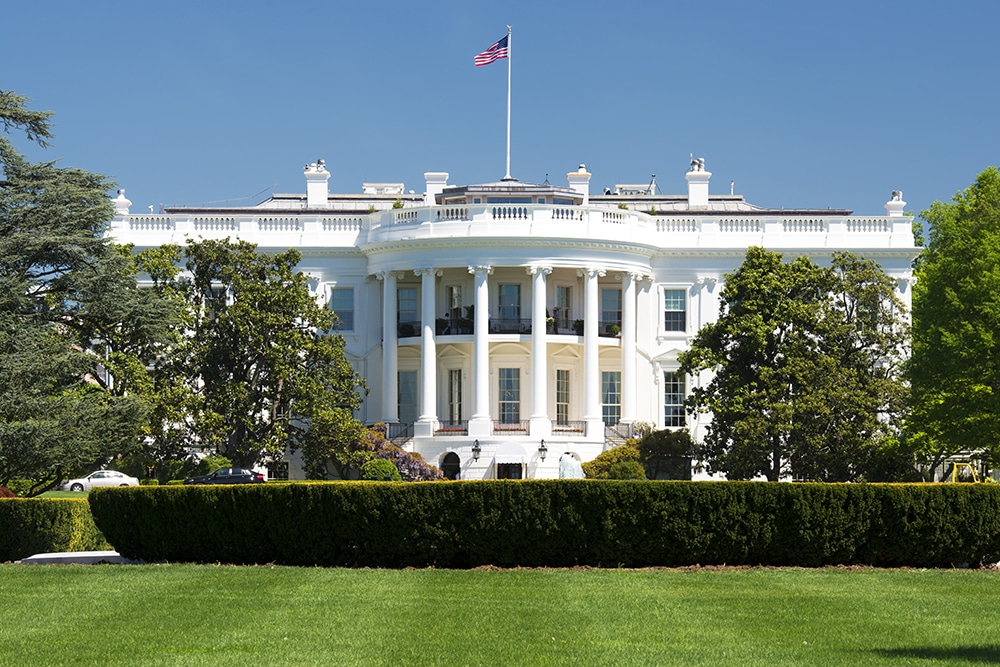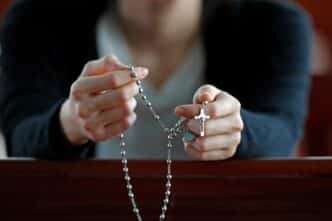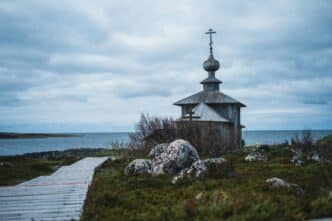(OSV News) — A number of organizations are inviting faithful to pray for persecuted Christians throughout the month of November, as more than 365 million believers in Christ worldwide suffer high levels of persecution and discrimination, according to a 20242023 report by the advocacy group Open Doors.
The first and second Sundays of November (Nov. 3 and Nov. 10) have each been designated as an International Day of Prayer for the Persecuted Church, a commemoration organized some two decades ago by the New York-based World Evangelical Alliance. The two dates are designed to give faith communities flexibility and convenience in observing the occasion, according to the website dedicated to the initiative, idop.org.

Red Wednesday observance
On Nov. 20, Aid to the Church in Need — which under the pope provides pastoral and humanitarian aid to persecuted Christians — will mark Red Wednesday, established by ACN in 2016 to raise awareness of Christian persecution worldwide. In honor of the day, parishes, schools and individual participants are encouraged to don the color red, which recalls the blood of the martyrs.
Red Wednesday is “ACN’s opportunity to shine a light on the reality that persecution often goes on unknown, unrecognized and thrives in the darkness,” said ACN’s United Kingdom office on its website. “By shining the red light of #RedWednesday we are identifying the extent of persecution. Inviting people to pray, stand in solidarity with and take action for those who suffer persecution.”

Mass was for some of the 40 victims killed in a June 5 attack by gunmen during Mass at the church. Over the last 14
years in Nigeria, 52,250 people have been killed only for being Christians, according to an April 10 report.
(OSV News photo/Temilade Adelaja, Reuters)
Rising numbers of persecuted Christians
Open Doors, which provides Bibles and support to persecuted Christians in more than 70 countries, notes that 1 in 5 Christians in Africa and 2 in 5 in Asia experience persecution. In the past year alone, the number of persecuted believers has risen by about 5 million, said the group.
Direct forms of persecution include attacks on life and property, assassinations, imprisonment, torture, restricted access to churches and Bibles, forced conversions and violence against women, while indirect attacks take the form of educational and employment discrimination, legal restrictions and denial of rights, according to the nonprofit International Christian Concern.
North Korea took the No. 1 spot in Open Doors’ 2024 World Watch List, with Somalia, Libya, Eritrea, Yemen, Nigeria, Pakistan, Sudan, Iran, Afghanistan and India also ranking as top countries for Christian persecution.
Countries of concern and key sources of persecution
In its 2024 report, the U.S. Commission on International Religious Freedom listed several nations as “countries of particular concern”: Afghanistan, Azerbaijan, Burma, China, Cuba, Eritrea, India, Iran, Nicaragua, Nigeria, North Korea, Pakistan, Russia, Saudi Arabia, Tajikistan, Turkmenistan and Vietnam. On the commission’s special watch list are Algeria, Egypt, Indonesia, Iraq, Kazakhstan, Kyrgyzstan, Malaysia, Sri Lanka, Syria, Turkey and Uzbekistan.
International Christian Concern cited Marxism, radical Islam, social and cultural discrimination and supernatural evil as the key sources of Christian persecution.
Survivor’s testimony
During ACN UK’s 2023 Red Wednesday event at St. George’s Cathedral in London, Margaret Attah — a survivor of Christian persecution and the inaugural recipient of ACN UK’s “Courage to Be Christian” award — recounted how attackers had stormed her parish church in Owo, Nigeria, moments after a June 5, 2022, (Pentecost Sunday) Mass.
“When the Reverend Father said, ‘The Mass has ended, go in peace’ … we heard the first shot,” said Attah in her acceptance speech, a video of which was posted to ACN UK’s YouTube channel. “We realized that there were gunmen outside, about four of them.”
Attah said she “ran to the altar to lie down on the floor there with many other people on top of me.”
After the attackers entered the church, “they started shooting people, killing,” said Attah. “They threw dynamite into the church and to the altar.”
The blast destroyed Attah’s legs, and “41 parishioners died,” with “many of us … severely injured,” she said.
Yet, “as for the attackers, I believe in forgiveness,” Attah said. “So I forgive them.”








